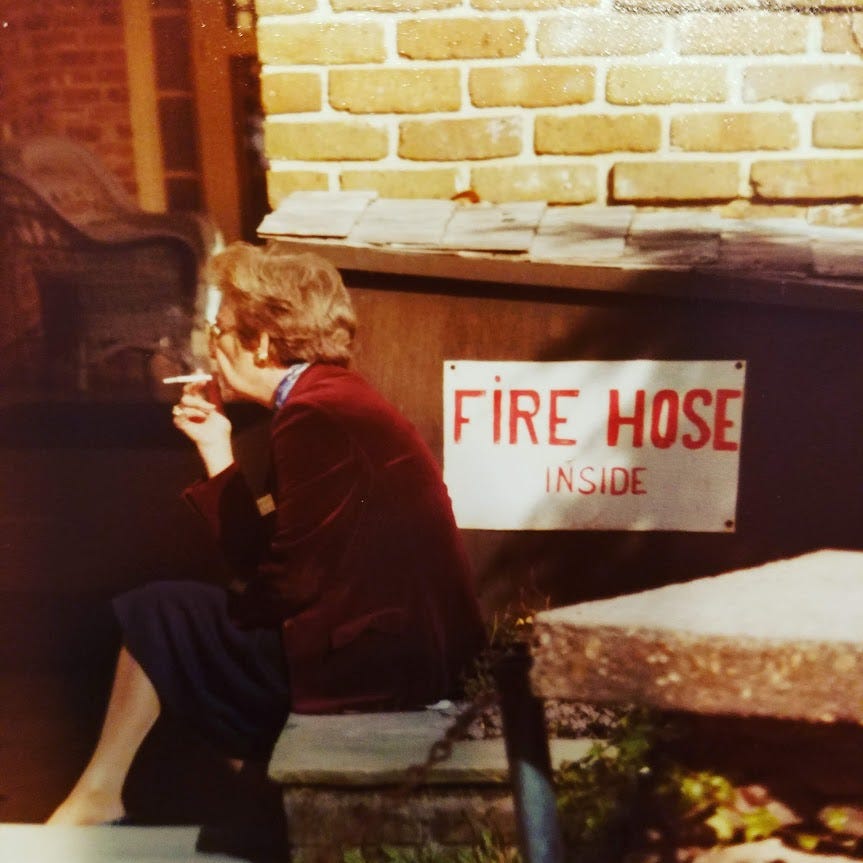Each night when I get ready to brush my teeth, I first reach for the dental floss.
I developed the habit as an adult. Flossing before brushing has become a default behavior. Now I reach for the floss without thinking.
I recently noticed I was avoiding the word “not” in conversation and writing. I started rephrasing my sentences. Consciously backspacing when writing or hesitating in conversation to avoid using a form of ‘not’.
In fact, the working title for my post two weeks ago was “You Want To Journal, But You Don’t Know What To Write”. I changed it because I wanted you, my reader, to know you did have something to write. (And again, I just rewrote that sentence to take out not.)
What made me start doing this? I’m developing a default behavior.
We depend a lot on our default behaviors. Many of those behaviors come from the habits we practice.
My desire to use positive phrases is an extension of my gratitude habit.
My gratitude habit led to looking for the good in my life to be grateful for. That led to changing the way I talk. I started choosing positive words. This meant not using the word ‘not.’ I would think, “How can I say it using positive phrasing?”
Consistency in my small gratitude habit (5 minutes to write gratitude) changed my behavior.
Habits are remarkably powerful constructs for us when they involve healthy rituals and small action defeats glorious inaction every time. - Danny Reeves
These behaviors are becoming my default behaviors. Soon, I won’t even have to think about them. Just like flossing my teeth.
Create good habits, good habits to reframe your thoughts and life effortlessly.
7 Days, 7 Thoughts on Gratitude and Good
The quote I used in this post is from an essay by my friend Danny. Here’s his complete essay.
In light of the above, Shawn Anchor’s Ted Talk on how using the external world (that we don’t control) as a lens to view the world does not predict our happiness. We are easily led to view our world through the lens of negativity. Starting at minute 8:20 of this talk, he makes the same point I make above. Watch this funny, informative talk.
It’s good to frame your thoughts and words in a positive way. Teachers learn quickly to avoid speaking the negative. Once the negative is spoken aloud, students think it, even if they weren’t before. Naming negative behaviors you want children to avoid makes them more willing to try them.
Bill Keaggy’s Tedx Talk (yes, another one) on finding attention, mindfulness, and creativity in the ordinary around us presents a way to help our brain process the external world. His proposed noticing walks will also help you find gratitude and good in the ordinary. This is another entertaining must-watch.
I took the picture above years ago in Bellingrath Gardens, Alabama. The contrast of a person smoking by the fire hose struck me as an ordinary moment of habit to capture.
A quote: “Kindness is for your soul as health is for your body: you do not notice it when you have it.” - Leo Tolstoy. I think the same can be said about good habits.
I’m grateful for my habit of keeping my phone with me most of the time. Not to stay connected but to be ready to take a picture. (Usually of the ordinary. The proof of that is in my Instagram account, @tinyteapottales.)
Thank you for reading!
What actions or words do you default to without thinking? Are you trying to develop some? Leave a comment to let me know.
❤
Susan




